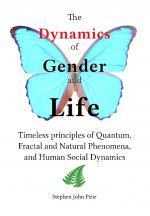The Belief Institute is an information resource and a bureau of consultants who provide tools and information with which to clarify, consolidate and expand understanding of personal, social and organisational belief-systems.
Generally, the Belief Institute is a specialist service providing mentoring, coaching and training for
- c-class executive officers (CEO, CFO et al.)
- business entrepreneurs, creative directors, artists ('creatives')
- politicians, management consultants, life coaches
- scientists, medical and alternative health practitioners
- academics and teachers
- new-age & spiritual teachers
Introduction to process
The following list details some of the principles and techniques by which we may analyse belief-systems.
-
Observe and question
One of the first freedoms to disappear in frightened, repressed societies is the freedom to ask questions. Questions can engage deep unconscious processes that help initiate change and action.Questions such as "what do I really want?" might require significant change in one's life. Socially awkward questions are often avoided in order 'to get along' with friends, family and the community. Generally, the depth of our questioning reflects our capacity for growth.a. IncludeAs a corollary of point 1, if we genuinely wish to observe and question, we need to include anomalous phenomena. Anomalous phenomena are examples of how our existing belief-systems are inadequate, incomplete or of limited scope and applicability.Presently, the field of quantum physics research offers a rich field of anomalous phenomena which have generally not been incorporated into the mainstream belief-systems of science, religion, politics, psychology and sociology.{C}b. UniversalityAny belief-system that cannot accommodate other belief-systems into one coherent framework of principles is, by definition, not a universal belief-system. Belief-systems such as science and religion are, given their incompatibility, limited localised perceptions of life. Science and religion are "sister belief-systems" in that they both objectify "out there" - they objectify our personal experiences of physical and meta-physical realities (resp.). Note, the term "meta-physical" is by definition that which exists behind, before, after or beyond immediate (observable) physicality (such as our perception and experience of the future).As is explained to some extent at this site, mathematical theorems such as Gödel's Incompleteness Theorem, Heisenberg's Uncertainty Principle and Turing's Uncomputability Problem indicate that the root source of physicality (and everyday experiences) cannot be entirely physical. The root source of physicality comprises fluid super-positions of potentials (waves) that cannot be reduced to simple mechanical processes or concepts. It is the fount of creativity and possibility from which our everyday world and experiences unfolds.
Practical applications of this understanding would be, for example, to look beyond the physical brain as being the root source and cause of human behaviour.
Conversely, application of this understanding would also require accepting the cause for meta-physical phenomena as also having a physical cause (in that physical and meta-physical cannot be completely independent, for otherwise there would be no "connective tissue" joining the two). Thus, spiritual experiences are necessarily related to, caused by, or invited by conscious, physical causes. It follows that we cannot be victims to "things that just happen."
Clearly, any coherent, comprehensive belief-system needs to include principles that can cover or include both physical and meta-physical dimensions.
-
Seek and allow
When we seek to find answers (in response to our questions), we set in motion processes that sharpen our attention, receptiveness and intuitions. However, the resultant intuitions (subtle feelings, odd thoughts) may be consciously avoided or ignored if we are not willing to change. For example, intuitive information connecting with (relating to) future undesired probable events can be ignored if one's belief-system does not include the ability to perceive nonlocal influences and connections ( ... read more). -
Act
'Actions speak louder than words' - an age-old truism that provides testimony to the level of belief in oneself and in our understanding.
 "The Dynamics of Gender and Life" ebook is now available at
"The Dynamics of Gender and Life" ebook is now available at